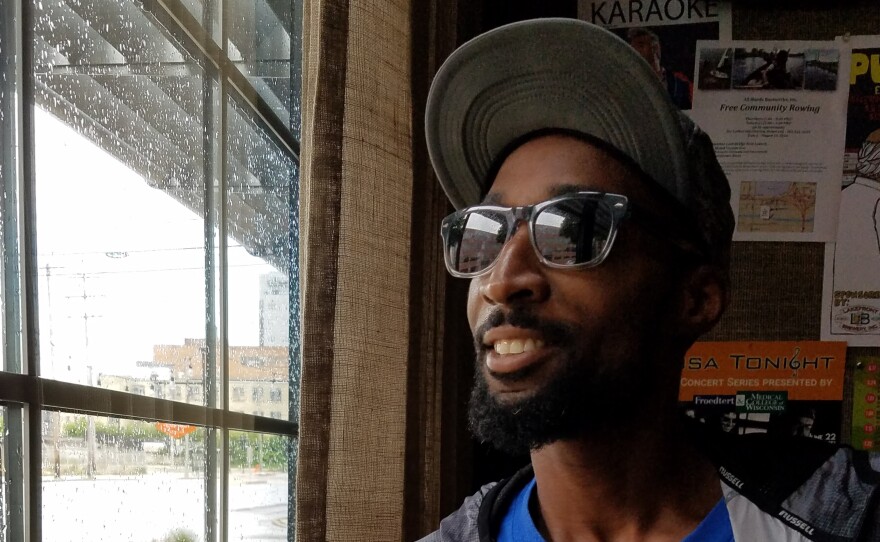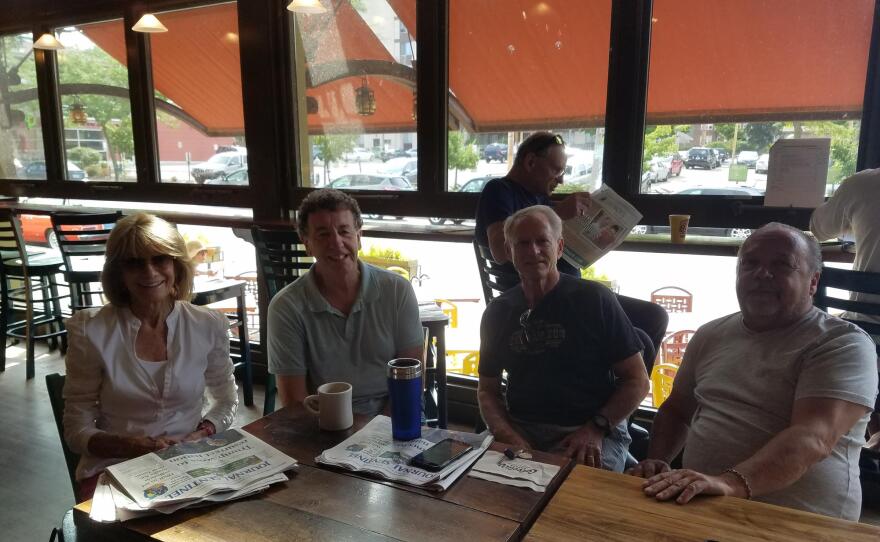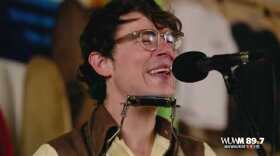If you frequent a coffee shop, you probably recognize some familiar faces: people you notice every day who stop in for their coffee and who chat with other patrons and the staff. You know, the regulars.
For Lake Effect's coffee series, we wanted to know why these people become regulars at a coffee shop and what this says about the role of coffee shops in our lives.
The answer lies somewhere in the writings of urban sociologist Ray Oldenburg. In 1989, Oldenburg coined the concept of a “third place,” a place that is not work, not home, but a place to informally gather, socialize and spend time.
Professor Emeritus of Communication at Cleveland State University, Leo Jeffres, has conducted studies on Oldenburg's concept, focusing on how these third places improve quality of life in neighborhoods.
Jeffres summarizes the main principles of Oldenburg's concept:
Conversation is the main activity. You might be eating, or drinking or doing something else, but conversation is the key.
"First of all, (a third place) should be a neutral place where everybody's welcome, there's no host. It's a leveler, so people from different backgrounds could attend. Conversation is the main activity. You might be eating or drinking or doing something else, but conversation is the key."
Jeffres adds, "There's sort of a home away from home, where you find regulars, people who sort of root there. Mood is sort of playful, and wit is prized."
Phill Modjeski and Trefor Williams are part of the group of regulars who meets at Colectivo Coffee on Prospect weekday mornings. In this election cycle, the two debate whether or not talking politics is part of their prized conversation.
"We just drink coffee and talk about soccer or golf, not politics," jokes Modjeski.
"We talk about politics," Williams retorts. "He doesn't talk about politics because he's fed up with it."
Rahman White, who goes by the nickname, "Rahskol," regularly wakes up at the crack of dawn most mornings, bikes to a Stone Creek Coffee and drinks his coffee while talking to baristas and other patrons.
He likes the Factory location on 5th Street by the train station because "they have the bar around the baristas where they serve, so people are picking up coffee and I'm sitting right at that spot. So it's like, if you make eye contact with me, the way I was raised, you have to say something positively, hopefully."
This positive interaction is exactly what coffee shop third places are meant to encourage, says Jeffres.
"I think there's always a need for community, and third places are that," he says. "If there is no third place, people will try to create a third space...You need a place to go. Not everybody has the most inviting home life, or work place, and so a third place is important for their quality of life."







